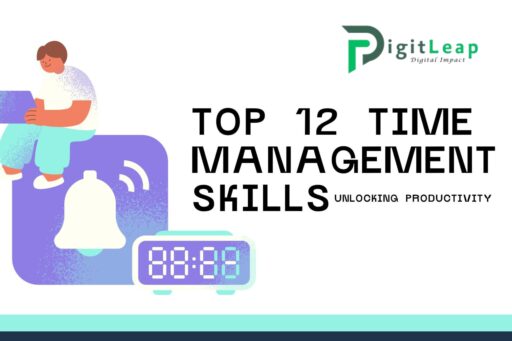Top 12 Time Management Skills: Unlocking Productivity
Introduction
In today’s fast-paced world, mastering time management skills is essential for both personal and professional success. Whether you’re a student, entrepreneur, or working professional, managing your time effectively can help you meet deadlines, reduce stress, and increase productivity. Time management isn’t just about getting more done in less time—it’s about focusing on priorities, setting goals, and using tools to optimize your work process.
In this guide, we’ll explore the top 12 time management skills that can help you boost your productivity, stay organized, and achieve your goals.
1. Prioritization
One of the most important time management skills is the ability to prioritize tasks. Not all tasks are equally important, and knowing which tasks should take precedence is key to productivity. Prioritization involves categorizing your tasks based on their urgency and importance.
- How to prioritize: Use frameworks like the Eisenhower Matrix to distinguish between urgent and important tasks, delegating or delaying less critical ones.
2. Goal Setting
Setting clear, achievable goals provides direction and purpose to your efforts. Without defined goals, it’s easy to lose track of time and focus on tasks that don’t contribute to your overall objectives.
- How to set goals: Use the SMART criteria—Specific, Measurable, Achievable, Relevant, and Time-bound—to set realistic goals.
3. Planning
Effective time management requires careful planning. This skill involves creating a roadmap for your day, week, or project, outlining the tasks you need to complete and the time you’ll allocate to each one.
- How to plan: Create daily or weekly to-do lists, set deadlines for each task, and review your progress regularly. Tools like Trello or Asana can help you stay organized.
4. Organization
Being organized helps you find what you need when you need it, reducing the time wasted searching for documents, files, or information. Organizational skills apply to both physical spaces and digital environments.
- How to stay organized: Keep your workspace clutter-free, organize files into labeled folders, and use digital tools like Google Drive or Evernote to store important information.
5. Delegation
No one can do everything. Learning to delegate tasks effectively is essential to time management, especially when you have a long list of responsibilities. Delegation allows you to focus on high-priority tasks while others handle less critical activities.
- How to delegate: Identify tasks that can be outsourced or assigned to team members and trust them to complete them. Use project management tools to monitor progress without micromanaging.
6. Decision-Making
Efficient decision-making plays a crucial role in managing time. Indecision can lead to procrastination, wasted time, and missed opportunities. The quicker and more confidently you make decisions, the more productive you’ll be.
- How to improve decision-making: Evaluate the potential outcomes of each option and choose the one that aligns best with your goals. Avoid overthinking and trust your instincts.
7. Focus
Staying focused on the task at hand can be challenging, especially with distractions like social media, emails, and multitasking. Developing the ability to concentrate fully on your work for extended periods is essential for productivity.
- How to improve focus: Use techniques like the Pomodoro Technique (25-minute focused work sessions followed by short breaks) or tools like Focus@Will to enhance concentration.
8. Time Blocking
Time blocking is the practice of allocating specific blocks of time for particular tasks or activities. This method helps prevent multitasking and ensures that you have dedicated time for each important task.
- How to time block: Divide your day into segments and assign tasks to each block of time. Stick to your schedule as much as possible to maintain productivity.
9. Stress Management
Poor time management often leads to stress and burnout. Developing strong stress management techniques can help you stay calm, focused, and productive even when faced with tight deadlines.
- How to manage stress: Incorporate relaxation techniques like deep breathing, meditation, or regular exercise into your daily routine. Tools like Headspace can guide you through mindfulness practices.
10. Setting Boundaries
In a world where distractions are everywhere, setting clear boundaries is essential for managing your time. This could mean turning off notifications during work hours, saying “no” to unimportant tasks, or setting limits on meetings.
- How to set boundaries: Communicate clearly with colleagues and family about your work hours and availability. Use apps like RescueTime to track and limit time spent on distracting websites.
11. Adaptability
Even with the best-laid plans, unexpected events can disrupt your schedule. Being adaptable allows you to shift gears and re-prioritize tasks without losing momentum.
- How to stay adaptable: Always have a backup plan in case things don’t go as expected, and don’t be afraid to adjust your schedule when necessary.
12. Reflection and Evaluation
Finally, reflecting on your time management practices helps you identify areas for improvement. Regular evaluation can help you tweak your approach and develop more efficient habits over time.
- How to reflect and evaluate: Set aside time each week to review your accomplishments and setbacks. Use this time to adjust your goals, priorities, and strategies for the upcoming week.
Conclusion
Mastering time management is a journey that requires patience, practice, and the right set of skills. By incorporating these top 12 time management skills into your daily routine, you can unlock your full productivity potential and achieve your goals more effectively.
Remember, time management isn’t about cramming as many tasks as possible into your day—it’s about making the most of the time you have by working smarter, not harder.



